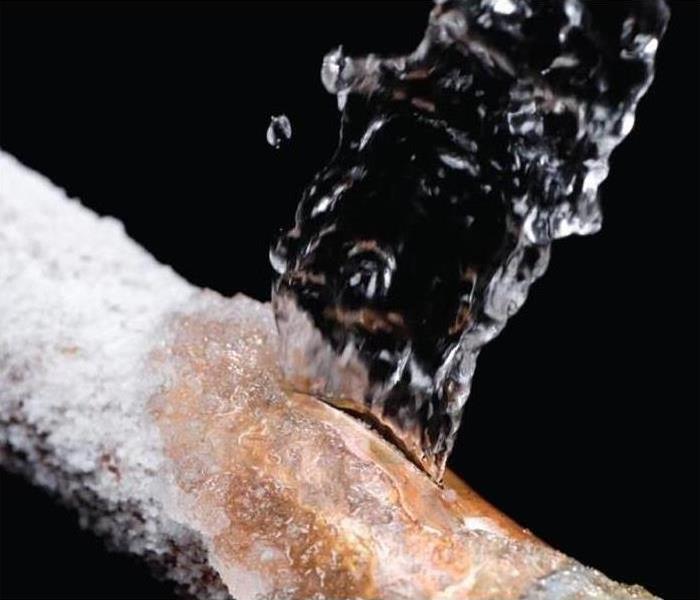Ice Damage
12/16/2019 (Permalink)
 Freezing temperatures can cause water to freeze inside of pipes, causing water pressure to build and eventually causing the pipe to burst.
Freezing temperatures can cause water to freeze inside of pipes, causing water pressure to build and eventually causing the pipe to burst.
- Ice storms are caused by freezing rain. The raindrops move into a thin layer of below-freezing air right near the surface of the earth, allowing them to freeze on contact to the ground, trees, cars and other objects.
- Ice accumulates when super-cold rain freezes on contact with surfaces that are below freezing point. That can be dangerous, especially for older adults. You can walk a senior’s dog to keep them injury free! Sign up for Dog Days of Winter.
- Throughout the US, ice storms occur most often during the months of December and January.
- Ice storms have the bizarre effect of entombing everything in the landscape with a glaze of ice so heavy that it can split trees in half and turn roads and pavements into lethal sheets of smooth, thick ice.
- Ice can increase the weight of branches by 30 times.
- Urban areas tend to suffer more economic and physical damage than rural areas because of the concentration of utilities and transportation systems (aircraft, trains, vehicles) — all of which may be affected to a great degree by the ice storm.
- The Midwest and Northeast are prime areas for freezing rain. In the high frequency band in the Midwest, an average of 12 to 15 hours of freezing rain occurs annually.
- Driving during an ice storm is extremely hazardous, because ice can cause vehicles to skid out of control, leading to devastating car crashes.
- The National Weather Service refers to winter storms as the “deceptive killers” because most deaths are indirectly related to the storm. In addition to car crashes, people die from hypothermia which is prolonged exposure to cold.
- In 1998, an ice storm in northern New York and northern New England damaged millions of trees and caused $1.4 billion in damage. Accumulations were as much as three inches thick!
- The ice storm that struck the northeastern US in December 2008 left 1.25 million homes and businesses without power. Described as the worst storm of the decade, a state of emergency was declared in Massachusetts, New Hampshire, and parts of Maine.






 24/7 Emergency Service
24/7 Emergency Service